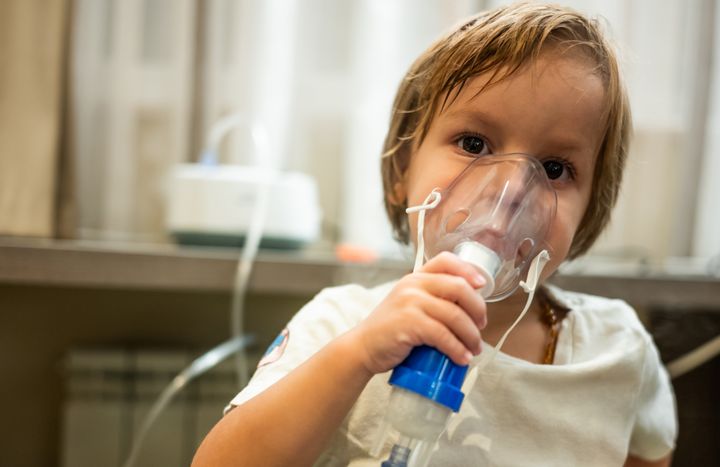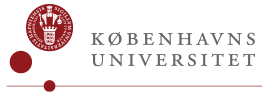Children from homes with fewer resources have an increased risk of asthma
Children from less-advantaged socio-economic circumstances have a significantly increased risk of developing asthma. Smoking during pregnancy and breastfeeding are two of the major contributing factors to these inequalities This is stated by a new European study led by the University of Copenhagen. The researchers call for the authorities to support families better.

Asthma is one of the most common chronic diseases in children worldwide. But not all children are equally likely to develop this disease. Children from homes with fewer resources have a significantly higher risk of developing asthma than children from better socioeconomic conditions. This is stated by a new large study, which for the first time has examined the drivers of these inequalities across six European high-income countries.
"Across Europe, we see a consistent pattern in that children from homes with fewer resources have an increased risk of developing asthma. Although the inequality is not the same in all countries, the overall picture is the same – even in a country like Denmark with a strong social safety net," says Angela Pinot de Moira, first author of the new study and visiting researcher at the Department of Public Health.
Highest inequality in France – lowest in Denmark
The study shows that children from homes where the mother has a short or medium education and where the family income is low have, on average, a 17% higher risk of developing asthma than children of mothers with a long education and a high household income. The more than 100,000 children and mothers on which the study is based come from Denmark, Norway, the United Kingdom, the Netherlands, France and Spain.
The degree of inequality between children from lower-income and higher-income homes varies from country to country. Denmark is the country in the study with the lowest degree of inequality in the development of childhood asthma - here children of mothers with short or medium education have a 7% higher risk of developing asthma. In Norway the difference is 20%, while the greatest inequality is found in France, where children from the same socio-economic background have a 61% higher risk of asthma.
Smoking, breastfeeding and challenging birth play a role
In the study, the researchers also examined the extent to which the inequality could be explained by these three factors: smoking during pregnancy, the length of breastfeeding, and birth challenges in the form of premature birth, low birth weight, and cesarean section.
The results show that all three factors help explain the higher incidence of childhood asthma in lower-income families across countries. Smoking and breastfeeding in particular are a clearly social pattern across all countries.
"The three factors are also intertwined, so if you smoke during pregnancy, you are also more likely to give birth prematurely. And this can in turn affect how breastfeeding goes. All in all, we can conclude that the very early life conditions are very important for preventing the risk of childhood asthma," says Anne V. Aurup, second author on the study and scientific assistant at the Department of Sport and Nutrition.
But the study also shows that these three factors do not fully explain the socioeconomic differences, and that their share of inequality varies from country to country. Previous studies have also suggested that several other mechanisms could play a role. These include indoor climate in the home, outdoor air pollution and chronic stress in the mother.
"Our results suggest that other risk factors for asthma that are known to be socially patterned, such as air pollution and indoor climate in the home, could play a greater role in countries where inequality is greatest than in countries like Denmark with a lower degree of inequality," says Angela Pinot de Moira.
More support for mothers
The study's findings call for more support for families from the authorities, the researchers conclude. This could include more help with smoking cessation and better support for mothers who have challenges with breastfeeding. But at the same time, the study emphasizes the need for broader social initiatives that address inequality in general.
"Early life is truly a critical period in children's lives, but also a vulnerable period for mothers. The best possible effort should be made to eliminate inequalities so that all children have equal chances of avoiding both asthma and other diseases. Because once you have asthma as a child, you also have a higher risk of deteriorating health as an adult," says professor and senior author Anne-Marie Nybo Andersen from the Department of Public Health.
***
INEQUALITY ACROSS EUROPE
The increased risk of asthma in children of mothers with short/medium education compared to children of mothers with long education varies across the six European countries.
- Denmark: 7% increased risk
- Netherlands: 12% increased risk
- Spain: 16% increased risk
- Norway: 20% increased risk
- Great Britain: 21-26% increased risk
- France: 61% increased risk
ABOUT THE STUDY
- In the study, the researchers used data from 107,884 mother-child pairs across seven cohorts from six different countries.
- By using the analysis platform DataSHIELD the researchers were able to work with data from several countries with the highest possible level of data security
- A particular strength of this study is that, by using new methods, the researchers have been able to separate different causes of inequality in childhood asthma."
- The study has been published in the magazine The Journal of Allergy and Clinical Immunology: In Practice
Keywords
Contacts
Anne Vedelsdal Aurup
Department of Sport and Nutrition
University of Copenhagen
E-mail: ava@nexs.ku.dk
Phone: +45 35 33 32 23
Anne-Marie Nybo Andersen
Department of Public Health
University of Copenhagen
E-mail: amny@sund.ku.dk
Phone: +45 35 32 67 65
Mobile: +45 30 28 04 62
Angela Pinot de Moira
Department of Public Health, University of Copenhagen
Epidemiology School of Public Health, Imperial College London
E-mail: anpi@sund.ku.dk / angela.roy19@imperial.ac.uk
Phone: +45 35 33 22 86
Maria Hornbek
Journalist
UCPH Communication
University of Copenhagen
E-mail: maho@adm.ku.dk
Phone: +45 22 95 42 83
Links
Subscribe to releases from Københavns Universitet
Subscribe to all the latest releases from Københavns Universitet by registering your e-mail address below. You can unsubscribe at any time.
Latest releases from Københavns Universitet
Børn fra hjem med færre ressourcer har forhøjet risiko for astma8.9.2025 07:16:00 CEST | Pressemeddelelse
Børn af forældre med lav uddannelse og lav indkomst har markant forhøjet risiko for at få astma. Rygning under graviditeten og amning er to af de store forklaringer på den sociale ulighed. Det fastslår et nyt europæisk studie, som Københavns Universitet står i spidsen for. Forskerne opfordrer til at myndighederne støtter familierne bedre.
Scientists transform plastic waste into efficient CO2 capture materials5.9.2025 20:02:00 CEST | Press release
From waste to valuable resource: Chemists at the University of Copenhagen have developed a method to convert plastic waste into a climate solution for efficient and sustainable CO2 capture. This is killing two birds with one stone as they address two of the world’s biggest challenges: plastic pollution and the climate crisis.
Forskere forvandler plastikskrald til effektiv CO2-fanger5.9.2025 20:01:00 CEST | Pressemeddelelse
Fra skrald til værdifuld ressource: Kemikere ved Københavns Universitet har udviklet en teknik, der kan forvandle plastikaffald til en klimaløsning, for effektiv og bæredygtig CO2-fangst. Opfindelsen slår dermed to fluer med et smæk og takler to af verdens største udfordringer på en gang: plastikforurening og klimakrisen.
Specialiseret AI-værktøj understøtter læring5.9.2025 11:32:28 CEST | Pressemeddelelse
Kunstig intelligens hjælper ikke nødvendigvis studerende med at lære mere, hvis den blot bliver brugt til at give svar eller skrive halvfærdige tekster. Men forskning fra KU viser, hvordan AI-værktøjer, udviklet med læring for øje, kan hjælpe studerende.
Hashtags og humor bruges til at sprede ekstremt indhold på sociale medier3.9.2025 08:35:19 CEST | Pressemeddelelse
Konspirationsteorier og opfordringer til chikane og vold florerer i dag på helt almindelige sociale medier som Facebook og Instagram. Men det ekstreme indhold bliver ofte pakket ind i ironisk leg, memes og hashtags, som gør det svært for myndigheder og medier at håndtere, viser ny forskning.
In our pressroom you can read all our latest releases, find our press contacts, images, documents and other relevant information about us.
Visit our pressroom